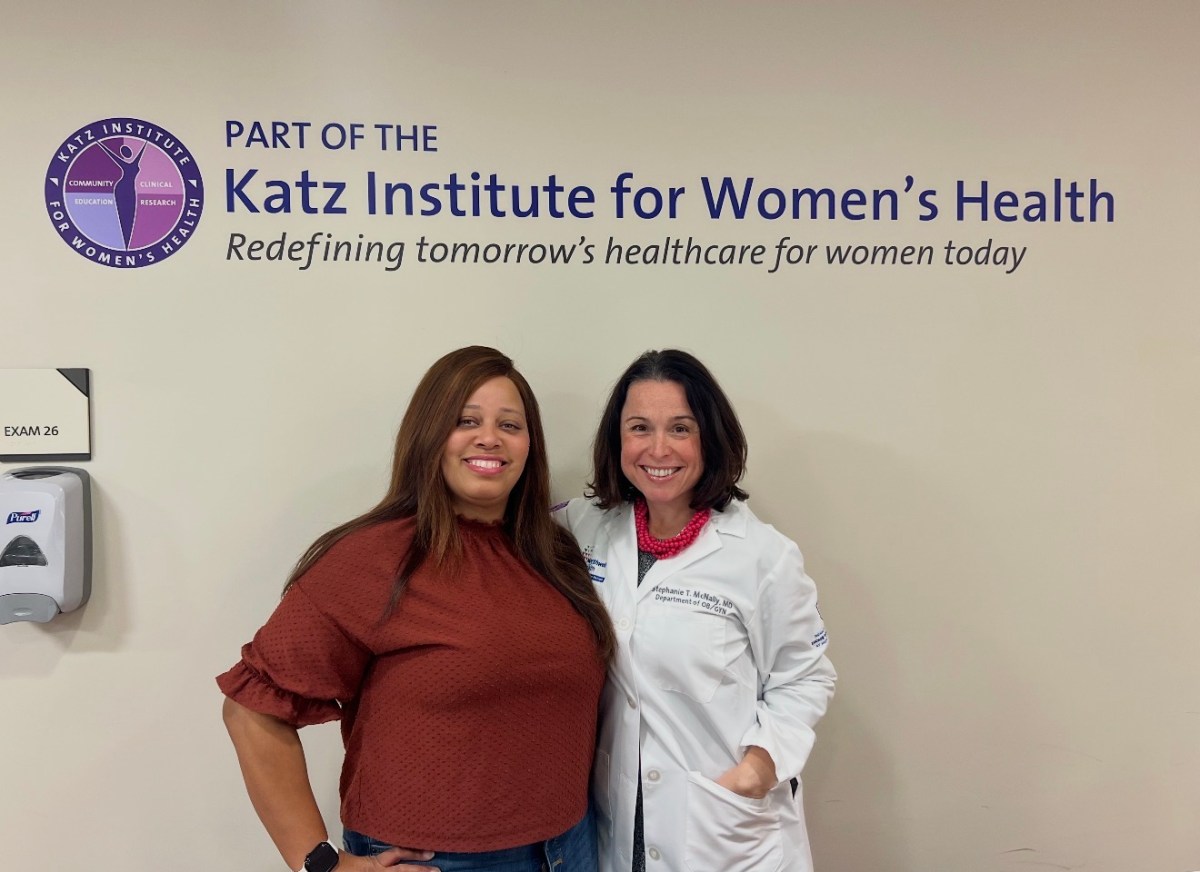A registered nurse from Northwell Health’s OB/GYN practice beat breast cancer twice before being thrust into early menopause. She eventually found symptom relief in her own office with a physician she used to work with.
Vanessa Bryant, 38, has the unique experience of being both a women’s health nurse and a patient. She advised people to listen to their bodies and advocate for themselves.
“The one thing that I would say that I’ve taken away from everything is pay attention to your body,” she said. “Pay attention to signs. If something doesn’t seem right or you feel like something is off, always make an appointment or follow up with your doctor.”
Bryant was first diagnosed with stage one breast cancer at 35. When she was first being tested, she wasn’t too worried because of her age.
“No, this can’t be. I’m too young,” she said. “Usually breast cancer is something that occurs to women later in life.”
After her first diagnosis, Bryant received a partial mastectomy and chemotherapy treatment. She also did fertility preservation as she wants to have children. She said chemo was the worst part.
“I didn’t give up, but just to see myself–even though I was pushing myself, it was still very hard,” Bryant said. “It’s hard to get out of bed.”
Upon completing treatment, Bryant remained on medication to prevent the cancer from returning. But about 18 months later, the cancer recurred. This diagnosis hit her harder emotionally.
“At that point, I just couldn’t believe it,” she said. “I was more in shock and I was more angry.”
Like the first diagnosis, this was stage one. She received a bilateral mastectomy surgery and started targeted therapy to help with any reoccurrences. Because the cancer was hormone positive, she was told she must wait three years to try for a baby.
This treatment, which blocked hormones, thrust Bryant into an early menopause. She started experiencing symptoms like night sweats, temperature sensitivity and hot flashes that intensified over the last six months.
Medical professionals want Bryant to be in menopause for another five years to decrease the risk of breast cancer returning, but she sought relief for her symptoms.
She made an appointment with Dr. Stephanie McNally, an OB/GYN and medical director of Northwell’s Katz Institute for Women’s Health. Bryant has known Dr. McNally for over seven years, and the two previously worked together in the labor unit.
“I wanted somebody that knew me and that would really give me the thorough background and support that I really needed. And to know that I had that was just amazing,” Bryant said. “She addressed every concern I had, even if it didn’t relate to breast cancer.”
McNally holistically evaluated Bryant’s situation.
“We have to individualize the care for each patient. So when a patient comes into my office, I open up the door, ‘Tell me what is on your list and then run down,’” she said, explaining that she evaluates mood, sleep, joints, GI issues and several other factors.
Bryant was put on a non-hormonal medication that helps regulate her body temperature, which has improved her symptoms greatly.
McNally emphasized the ability of the Katz Institute to cater to women with varying needs, including those in medically induced menopause.
“We are very skilled to go through all of the options with you collectively and have the comfort in treating you,” she said. “So for that specific subset of patients with cancer survivorship who then now are put into this chemically induced or surgically induced menopause, we are ready.”
































